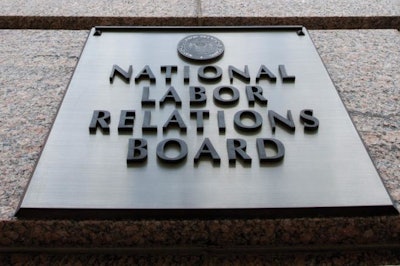
The National Labor Relations Board (NLRB) has declared that employees with access to an employer’s email system in the course of their work must, in practically all cases, be allowed to use the employer’s email system during non-work time to engage in union organizing and otherwise communicate about wages, hours and other workplace issues. (Purple Communications Inc., decided Dec. 11, 2014). This decision applies to employers – whether or not the company has a unionized workforce. Any company with a “business use only” policy for its email system now is exposed to possible NLRB adversarial action for having such a restriction.
Email Use Policy:
At issue was the Purple Communications email use policy that provided in part:
INTERNET, INTRANET, VOICEMAIL AND ELECTRONIC
COMMUNICATION POLICY
Computers, laptops, internet access, voicemail, electronic mail (email), Blackberry, cellular
telephones and/or other Company equipment is provided and maintained by [Company] to
facilitate Company business. All information and messages stored, sent, and received on these
systems are the sole and exclusive property of the Company, regardless of the author or recipient.
All such equipment and access should be used for business purposes only.
In this case, the union attempting to organize Purple Communication’s workers charged that this policy was unlawful on its face because it prohibited employees from using the company’s email for union organizing communications to co-workers (e.g., sending union authorization cards, flyers, video clips, etc.) and discussing other workplace issues.
NLRB Ruling:
On a 3-2 vote, the NLRB overruled its 2007 decision in the Register Guard case (which approved a company’s email policy with a business use only restriction), and declared:
“[W]e decide today that employee use of email for statutorily protected communications
on nonworking time must presumptively be permitted by employers who have chosen to
give employees access to their email systems.”
Describing its decision as “carefully limited,” the Board stated: (1) the decision only applies to employees who have already been granted access to the employer’s email system and, importantly, does not require employers to provide such access; (2) an employer may only justify a total ban on non-work use of email by proving in “the rare case” that “special circumstances” make the ban necessary to maintain production or discipline; (3) absent justification for a total ban, an employer may apply uniform and consistently enforced controls if they are proven necessary to maintain production and discipline; and (4) the decision does not address access to a company’s email system by non-employees nor address other types of electronic communications. Proving the existence of “special circumstances” will likely be a heavy burden for the employer.
Also discussed in the decision (although not an issue) is the employer’s monitoring of the electronic communications on its email system, which will be lawful according to the NLRB, so long as the employer “does nothing out of the ordinary,” such as increasing its monitoring during a union organizing drive or focusing its monitoring efforts on union or other protected employee activity. Finally, an employer may still notify employees that it monitors (or reserves the right to monitor) computer and email use for legitimate management reasons and that employees have no expectation of privacy in their use of the employer’s email system.
Conclusion:
The NLRB’s Purple Communications ruling will likely be challenged in the federal appellate courts and perhaps the U.S. Supreme Court. Until modified or reversed by a court, the NLRB will enforce this rule in pending and future cases. Every employer with a policy on the use of its email system by authorized employees is well advised to have its professional advisors review the policy and consider changes as needed to conform to the NLRB’s latest fiat.
To view the NLRB’s full decision, go to:
http://www.naw.org/files/PurpleCommunications.pdf






















